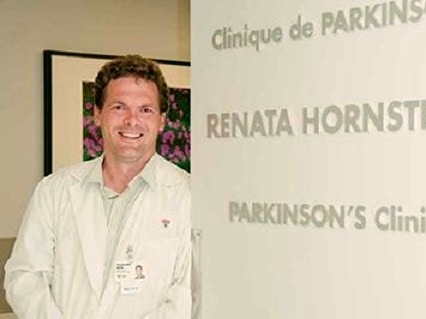

Canadian researchers may have made a major breakthrough is one of the world’s most misdiagnosed diseases, Parkinson’s.
Scientists from McGill University Health Centre say they have developed a new list of criteria for the early diagnosis of Parkinson’s, which is frequently misdiagnosed because it so closely resembles other neurological disorders. Their study, published in the journal Movement Disorders, proposes a diagnostic criteria aimed at identifying the unique characteristic of Parkinson’s in its earliest stages.
“In light of the latest scientific insights and technological advances, we were able to establish a new list of criteria based on expert clinical diagnosis,” says Dr. Ron Postuma, an associate professor in the Department of Neurology and Neurosurgery at McGill University who worked on the study. “Our aim was to create a benchmark that will systematize the diagnostic process, make it reproducible across centers and that will enable a wider range of non PD-specialized clinicians to provide patients with an accurate diagnosis.”
Parkinson’s Disease is a progressive disorder of the nervous system affecting movement. The disease, which currently has no cure, affects nerve cells in the brain by controlling dopamine, a a chemical that carries signals between these nerves. Parkinson’s results in tremors, slurred speech, impaired balance, and rigidity of the muscles. Parkinson’s disease is named for Dr. James Parkinson, an English physician who in 1817 wrote an essay entitled “An Essay on the Shaking Palsy”.
Parkinson’s disease is the second most common neurodegenerative disorder in the world after Alzheimer’s disease. An estimated 55,000 Canadians eighteen or older suffer from it. On average, people get Parkinson’s at the age of 64.4 years and are diagnosed with it almost two years later, at age 66.2. But in younger people the disparity between symptom onset and diagnosis takes almost seven years, as doctors generally rule the disease out in those who are younger.
One recent study suggests that Parkinson’s progresses more slowly in those who exercise regularly. That study, presented at the International Congress of Parkinson’s Disease and Movement Disorders in San Diego, examined information nearly 3,000 Parkinson’s patients and found those who began an exercise program earlier in life had improvements in areas such as movement, mood, and social interaction.
Other researchers say they are seeing some success using stem cells to treat Parkinson’s. At Tehran’s Shahid Beheshti University, reearchers used stem cells extracted from blood or bone marrow to replace damaged cells with healthy ones. Hassan Niknejad, head of the faculty of New Technologies at Shahid Beheshti University of Medical Sciences says the process holds more promise than drug therapy because drugs aim to stimulate dopamine production, something that becomes increasingly difficult as the proportion of health cells is reduced.
The researchers at McGill say early diagnosis is a key.
“With this new classification our goal is to set up a research agenda that will help identify the features that signal the presence of the disease early on,” said Dr. Postuma. “Our hope is that, as research advances, our understanding of the mechanisms at play in the disorder will enable us to develop therapies and treatments that can be administered early in this process, eventually slowing or stopping the progression of PD altogether.”
Leave a Reply
You must be logged in to post a comment.




 Share
Share Tweet
Tweet Share
Share




Comment